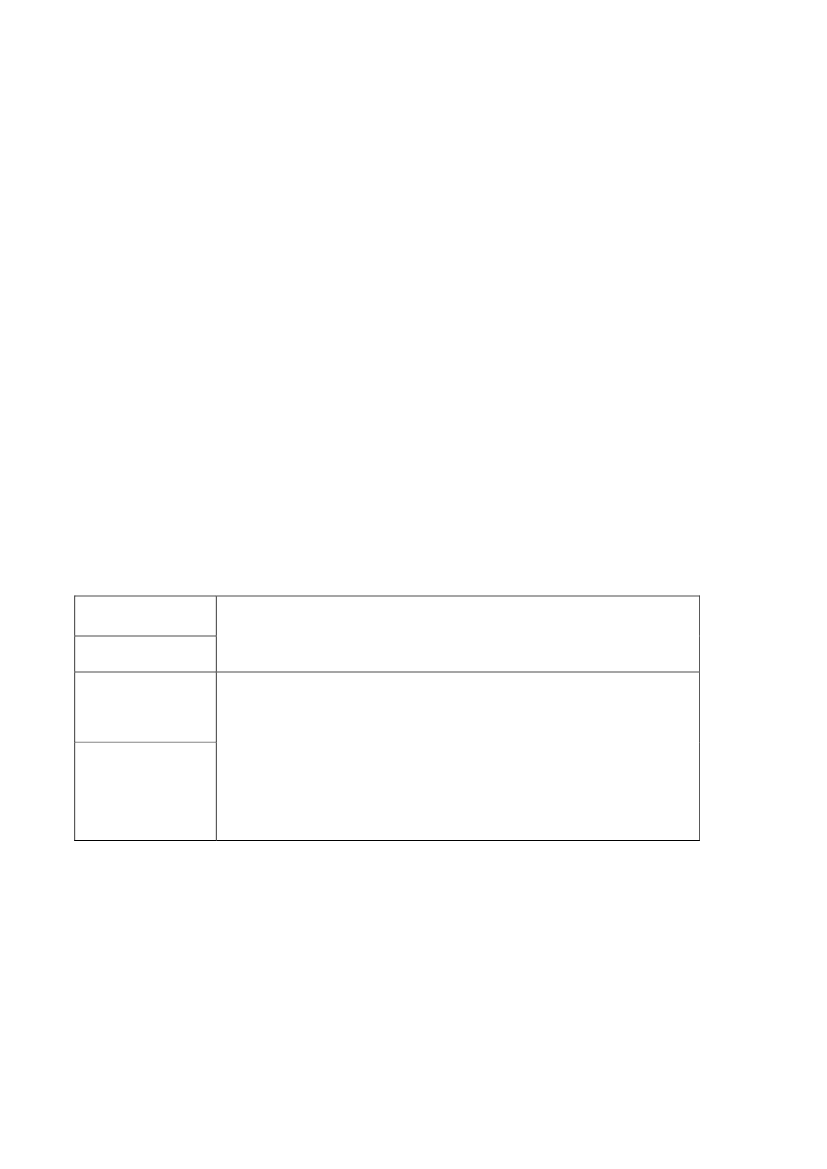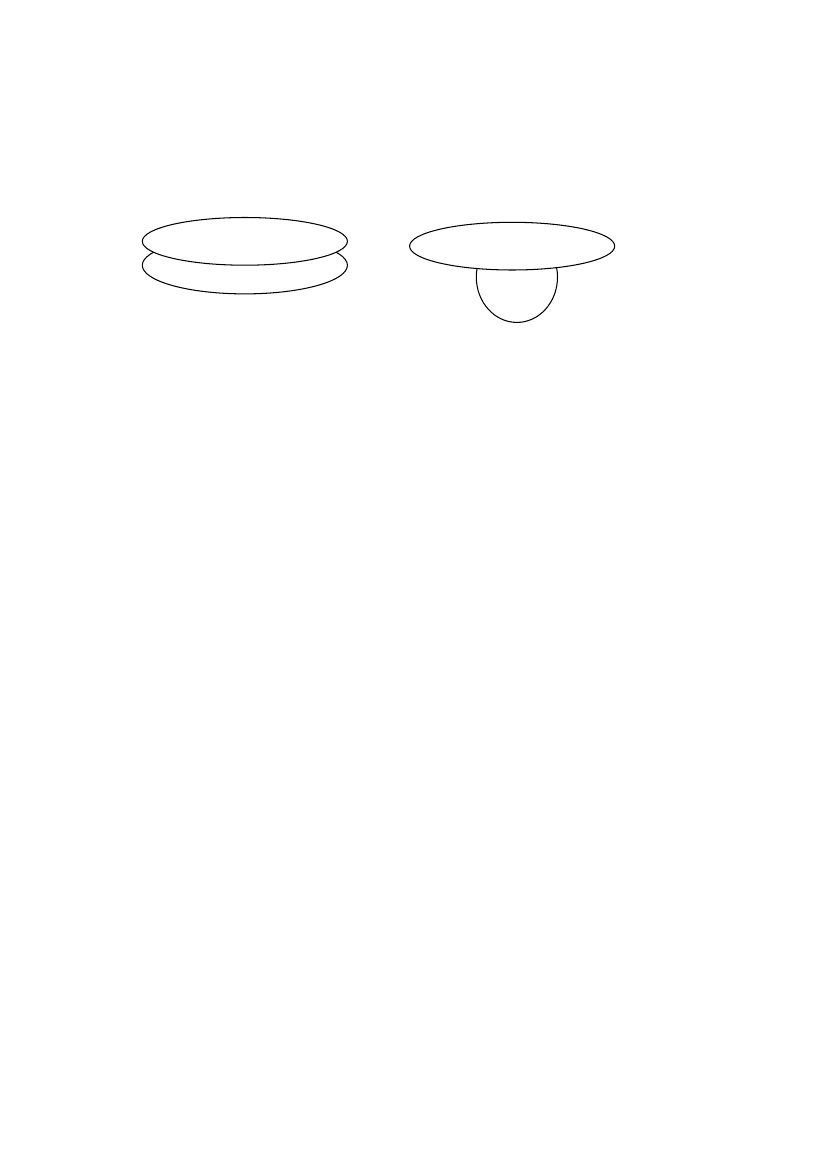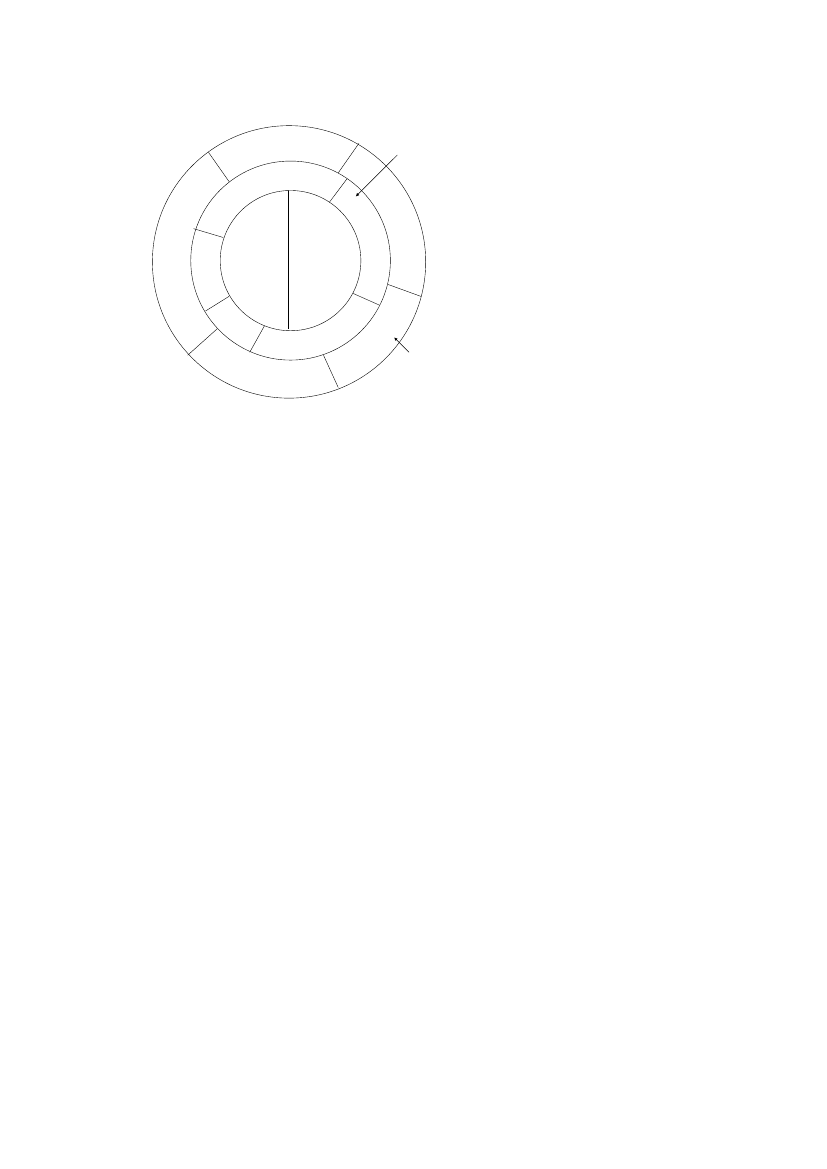Forsvarsudvalget 2013-14
FOU Alm.del Bilag 63
Offentligt
EvaIuation of Centre for Military Studies2013
Report by an international evaluation panel21 June 2013
EvaIuation of Centre for Military Studies 2013Report by an international evaluation panel
Contents:1. Introduction and summary2. The four development phases of CMS3. Assessments of CMS’s development and achievements in the first 2-3 years period4. Recommendations for the future development of CMS5. Background for and process of the evaluation
Annexes1.2.3.4.5.6.Terms of Reference for the evaluationBrief presentation of the Panel MembersOverall time-schedule for the evaluationList of background documents for the evaluationProgramme for the Panel’s assembly 29-30 April 2013Framework of themes to address in the evaluation
1
EvaIuation of Centre for Military Studies 20131. Introduction and SummaryThis report presents the outcome of the independent evaluation of Centre for Military Studies(CMS) carried out in spring 2013 by an international evaluation panel. The evaluation has beencompleted in accordance with the Framework Agreement between the Ministry of Defence andthe University of Copenhagen, which states that an 'independent, external research evaluation' ofCMS’s activities will be conducted in 2013. The report’s section 5 presents briefly the backgroundfor, and process of, the evaluation.CMS is a centre at University of Copenhagen which “carries out strategic research and providesresearch-based public sector services with a focus on topical military and defence and securitypolicy issues and provides an organisational framework for interdisciplinary research cooperationbetween the University of Copenhagen, other research institutions and other relevant parties.”1The Centre was established on 1 April 2010 on basis of a decision by the parties of the DanishDefence Agreement. The annual budget of CMS is about 10 million DKK, primarily financed by thebudget of the Defence Agreement.In accordance with the Terms of Reference (annex 1), the overall purpose of the evaluation is toassess the quality of research and research-based public service at the Centre, and to support thecontinued development of the Centre’s research and the research-based public service. The Termsof Reference emphasises that CMS’sdevelopment and development opportunitiesshall be animportant part of the evaluation, as the Centre is founded rather recently (in 2010). Therefore,and because the financing of CMS has already been decided by the Danish Parliament for theperiod 2013-2017, the Panel has placed its main focus on forwarding recommendations on futureactions which CMS may implement during its coming development phase.The Panel’s approach in the evaluation is based on a model where CMS’s development takes placeduring four phases. In section 2 we explain our model, related to the Centre and its work:We find that CMS has accomplished the two first phases with great success, i.e. the start-upphase and the phase of establishment. Now CMS is facing the third phase, the consolidationphase. The transition to this third phase entails an important shift of development which isdecisive for the Centre successfully ending in the fourth and final phase as a mature, sustainablecentre. We wish to underline that the development which the centre now faces requiressignificant support and involvement of the central stakeholders for becoming successful.Section 3 presents our concrete assessments of CMS’s achievements and results hitherto,including assessments related to the five specific themes laid out in the Terms of Reference of theevaluation.
1
Quotation from CMS’s website, http://cms.polsci.ku.dk/om/
2
As described in section 3 we find, overall, that the extent and quality of CMS’s work since itsestablishment in 2010 are impressive, all the more so given the small number of full-timeresearch staff employed by the Centre. This holds true for the Centre’s publications as well as forits various outreach and networking activities.In section 4 we explain our specific recommendations for the development, and the decisive shiftsof direction, which we believe CMS should go through now for successfully settle as a sustainablemature centre.Our specific recommendations include the following:CMS should determine its future profile, by considering where it wants to position itself asthe mature Centre. We see CMS as a publically-owned, internationally-engaged centre,which focuses on policy-relevant research and research-based information and advice thatcontributes to the country's defence and security policy – i.e. somewhere in-between athink-tank and a traditional university centre.CMS’s “Styringsråd” should be abolished and replaced by an Advisory Board, the purpose ofwhich should be to advice the Centre and assist in its development.CMS should establish clearer definitions of its concept of research of international qualityand its concept of research-based advisory activity. The Centre is not the typical universitygroup who undertakes theory developing basic research. The Panel sees the mature CMS asconducting solid applied research and publish in application-oriented, peer reviewedjournals, rather than the basic, theory-developing research of a typical “pure” universitycentre. Thus, the journals that can be considered highly esteemed for CMS’s publishing arenot necessarily those that are highly rated for the traditional research group at the Faculty.CMS should prioritise a few, well-defined focus areas within which the Centre shouldconduct in-depth research of international quality.A critical mass of resources and personnel is of utmost importance to succeed for bothensuring a solid, focused and long term development of core-competencies and maintainingthe various user-oriented services. To fulfil today’s objectives and those outlined by thePanel, we find that a reasonable critical mass of staff should be at least 20 employees, ofwhom at least 8 should be permanent staff members.It is of crucial importance with a stable, long term core funding for permanently employing atleast 3-4 persons. We recommend that this core funding of approximately 2-3 million DKKper year should be co-financed by the University and the Ministry of Defence for ensuring anadequate balance between orientation towards practice and scientific depth of the Centre’sresearch. In addition the Centre should work more systematically and actively with medium-and short term fund-raising – directly from the stakeholders as well as from national andinternational public and private funds.
3
The competencies of CMS should be less dependent of individual staff members bybecoming more broadly anchored in the organisation; and the framework of careeropportunities for each position in the Centre should be made more clear.CMS should expand its international interaction, including strategic alliances andcollaborative projects with external international research groups and institutes, andstrategic recruitment of high-level international fellows. It is important, however, to keepbalance between foreign high-level expertise and internal development of competencies ofthe staff for ensuring organisational stability of the Centre’s core competencies.CMS should consider to strengthen further its interaction with practice, including considermaking the military analyst employment system more flexible.
2. The four development phases of CMSAs mentioned in the introduction and summary, the Panel’s evaluation takes basis in a modelwhere CMS’s development takes place during four phases. In this section we explain our model onthose four phases in relation to CMS and its work. Our phase model for CMS’s development isshown in figure 2.1.
Positive characteristics:Entrepreneurial. Committed. Innovative. Flexible. Public/news oriented.Un-structured. Floating. Ambiguous (in selection of topics)2. EstablishmentDependent of individuals.3. ConsolidationPositive characteristics:(FocusedClear long term strategy and objectives.development towardsClear structure. Clear role. Robustness, independence, international profilethe mature centre)Clear focus in terms of activities and topics (prioritising, de-selecting)4. The matureBroad anchoring of competencies. EntrepreneurialcentreCommitted. Innovative. Flexible. Public/news orientedNegative characteristics:Un-structured. Floating. Ambiguous (in selection of topics).Dependent of individualsFigure 2.1 Four-phase model for CMS’s development from start-up to mature centre
1. Start-up
CMS has successfully accomplished the two first phases and should now consolidate forbecoming a mature CentreIn the view of the Panel, CMS has gone through two development phases, namely thestart-upphaseand thephase of establishment.The start-up phase is the phase preceding the officialfounding of CMS: In the start-up phase the stakeholders, not least the parties of the DanishDefence Agreement, discussed the future destiny of CMS’s predecessor, Danish Institute forMilitary Studies (DIMS), which was an independent research unit supported by and located at the
4
Royal Danish Defence College (FAK). It was decided to found CMS as a centre conducting researchand providing research-based public sector services, fully integrated at University of Copenhagenand financed via the budget of the Defence Agreement. The phase of establishment is the 3 yearphase that CMS now has passed as research and service centre at the University. In this phase theCentre has been staffed and entered well into operation. The establishment phase is now nearingits end – not least through the present independent evaluation of the Centre.As described in further detail in section 3 in the report, the Panel finds CMS’s achievementsand results during its three years of establishment impressive. In relation to our four-phase model,we find that CMS’s approach for developing has been very well suited for the start-up phase andthe phase of establishment, including features such as innovativeness, creativity, flexibility,ambiguity, etc. (see figure 2.1 further below).CMS is now facing the third phase, theconsolidation phase,in which the good results andactivities established in phase 1 and 2 should be consolidated. In phase 3 the young, enthusiasticCentre must focus on a more structured and targeted strategic development, for achieving thatquality and position which is the ticket to the fourth, mature phase. We see a duration of about 5years for phase 3, as it takes about 8 years (of which 3 have passed hitherto) to establish a mature,professionally well-founded research environment (according to the literature it takes 2 PhDgenerations plus a couple of years).
The transition from phase 2 to phase 3Phase 3 isnotabout doing more of the same as in phase 2, or doing it better. On the contrary theCentre should do differently in the third phase. Some of the features that were great strengths inthe first two phases are not necessarily strengths in the third phase. In phase 2 it was important tobe entrepreneurial and “make the business running” by giving space to the people who like to“run with the ball” within their fields of interest. CMS had to make itself visible and undertake amultitude of service activities for meeting stakeholders’ expectations to the newly establishedCentre – the Centre was founded due to unfulfilled needs.Thus, in the phase of establishment the stakeholders (University of Copenhagen, the parties ofthe Defence Agreement and the Ministry of Defence) have joined in their common interest forestablishing the Centre. The stakeholders have strained their individual interests to some extent –which is willingly done in a “honeymoon-like” phase where focus is on the many new activitiesthat fulfil the needs. Clearly, the present “constructive ambiguity” at the Centre is preferable forall stakeholders, as the Centre meets the needs of all stakeholders in this phase. In contrast, acommon planning of asustainablemature centre at long term is more difficult to agree on due tothe differences between the basic interests of the stakeholders.It is the clear opinion of the Panel that the “constructive ambiguity” is not preferable in phase3 if the Centre should end successfully in phase 4. In phase 3 a number of decisions must be taken:Which kind of centre should CMS develop into at a long term? What are the important strategicchoices of direction? Etc. Therefore ”strategic clarity” is necessary in phase 3, including asignificant change of governance style:From entrepreneurial development to consolidationFrom dependence of individuals to more structural and organisational anchoringFrom quantity to quality
5
From ambiguity to focusFrom actuality to long term planningFrom enthusiastic pioneering to enthusiastic seriousness
The mature CMS should still be characterised by innovation, entrepreneurship and orientationtowards practice, while not as theory-driven, abstract or other-worldly. However, sustainablework of international quality is not obtained by continuing undertake a multitude of activitiesinitiated ad hoc on basis of occurring incidents and demands. A common, focused and structuredplan is necessary for ensuring consolidation and quality.In this connection we wish to emphasise that the CMS faces adecisive shift of developmentforsuccessfully becoming the mature, sustainable centre. The shift is not easy to carry through. Somedifficult choices should be made, and they require significant understanding, involvement andsupport from CMS’s stakeholders. The coming development of CMS is even more difficult due tothe changing environment, with fewer defence resources, a lower operational tempo, decreasedpublic support for expeditionary operations but the continuation of a multitude of threats.
The mature centreThe Panel finds the ultimate goal is CMS entering into phase 4. We see the mature, sustainableCMS as a practice-oriented, international research centre holding the following importantcharacteristics:Research quality of international standard.Well-established, systematic strategic collaboration with other international researchcentres, thus placed as an important node in the international community within the field.Resources of critical mass for undertaking the multitude of tasks of an internationalresearch centre of good quality, including the research-based information and adviceservices nationally.A strategy which both clarifies the Centre’s core competencies in the international researchcollaborations and illuminates the broad and multi-facetted topics which must beaddressed in the national context.A core financing which allows a long term focused development, while ad hoc new projectsshould be financed by short- and medium term funding.In-depth research focused within a well-defined research area with prioritised topics,within which the Centre conducts in-depth research and builds up its core competencies.As illustrated in figure 2.2, this should not entail a rigid centre as regards its user-orientedtopics and tasks. On the contrary, an important quality of the Centre is an ability toinnovate a broad array of knowledge areas on basis of its core competencies. Thisinnovation in relation to the surrounding world is actually the raison d’etre of the matureresearch centre. The focus in terms of topics and tasks is the means and not the target.Innovative contacts on a strategic level with the surrounding world. Events, advisoryservices, facilitation of networks etc. are not organised accidentally or unsystematically,but well-planned and with organisational efficiency. These activities should not take the
6
time and resources from the building and maintaining of the core competencies, i.e. theresearch, including the effort for establishing the international profile.
PracticeResearch
PracticeResearch
CMS today
The mature CMS
Figure 2.2.The Panel sees the mature CMS as a practice-oriented, international research centre. The mature Centreshould conduct solid in-depth research of international quality within a well-defined area of topics, but continue toprovide research-based services within a broad area of topics to the Danish authorities, politicians and other clients.
There are several reasons for the newly established centre to aim at the mature phase, includingthe following:First, it is the Panel’s experience that it will be difficult for the Centre to be innovative and set abroad national agenda within its field, if the Centre does not hold the characteristics of the maturecentre. At length an un-mature Centre will find it difficult to continue being the independent voicewith an edge that makes a difference in the national debate. To avoid becoming a part of “theestablishment”/to not lose its independence/ the Centre should, eventually, be well-integrated inthe international community within its field as this establishes a systematic counter-weight to thenational context.Second, if focus is on responding to ad hoc occurring new political challenges, there is a highrisk of moving more and more to consultant work based on earlier research results instead ofconducting new research for creating new knowledge – in a busy everyday full of events, short-sight expectations and deadlines, it can be very difficult to find the space and inspiration forinitiating new, relevant research. In contrast, the mature Centre could establish systematic andorganisational processes that would ensure time for and focus on new research and newinnovative research results, including quality control and international publishing of this research.Third, it is important the Centre reach the mature state for maintaining its “raison d’etre” at auniversity. A newly established research centre is relevant for a university due to its externalfinancing and its innovative approach and interaction with practice. But at length this is notenough for the mother institution, who would normally expect the more traditional objectives of auniversity group to be met, such as research quality of international standard and publication ofpeer-reviewed articles. As explained in section 4, we see the mature CMS as both conductingresearch of international quality and publicising peer-reviewed articles, but in the field of appliedresearch rather than the theory developing basic research which is undertaken by a typicaluniversity group. The coming development therefore entails the University’s understanding for theCentre’s particular profile, cf. section 4.
7
3. Assessments of CMS’s development and achievements in the first 2-3years periodThis section presents the Panel’s concrete assessments of CMS’s achievements and results duringthe period since its establishment in 2010 to present, including assessments related to the fivespecific themes indicated in the Terms of Reference. The assessments on the hithertoachievements of the Centre are brief, as the Panel has placed main focus on forwardingrecommendations for CMS’s future actions and directions in section 4.
Overall assessmentThe Panel is of the opinion that the extent and quality of CMS’s work since its establishment in2010 are impressive, all the more so given the small number of full-time research staff employedby the Centre. This holds true for the Centre’s publications as well as for its various outreach andnetworking activities.The Centre has done remarkably well in a military context, which over the last fifteen years hasbeen characterised by a heightened operational military tempo, greater civil-military cooperation,new kinds of security partnerships and the emergence of new types of threats to Denmark and itsallies – from cyber attacks to challenges in the Arctic.CMS has among other things established well in the University of Copenhagen, establishedgood links to policy makers especially the parties of the Defence Agreement of the DanishParliament, published a multitude of publications, conducted a multitude of events and createdwell-developed links to stakeholders in private sector.We thus find that CMS, so far, has provided a very good research-based framework for theDanish public debate within the continuously developing defence and security agenda.
Specific assessments as regards the five themes in the Terms of ReferenceCMS’s processes and workflows have facilitated the Centre’s outputCMS has conducted research and completed a multiplicity of research-based products andactivities, such as publications, seminars and facilitation of networking, concerning severaldifferent defence and security topics.The Panel finds that the Centre has shown a significant agility in providing services swiftly onthe continuously changing demands for topics from its users and stakeholders.The multitude of activities and topics, many of which have been initiated on basis of dialoguewith the users and stakeholders – measured against the small number of staff – reflects that theCentre has established processes and work-flows well suited for developing its activities.Combined with the high user satisfaction expressed in the recent user survey, it also reflects thatCMS operates in a well-organised dialogue with its users and stakeholders, including the Ministryof Defence, the parties of the Defence Agreement, the Armed Forces, industry and more.
8
This assessment was further supported at our meetings in late April 2013 with central usersand stakeholders, all of whom expressed satisfaction with their cooperation with the Centre. Alsoaccording to user survey, CMS should continue working with its current activity types andaddressing the topics which it addresses today.CMS is highly productive and its activities are useful and of high qualityAccording to the recent user survey, all the different categories of CMS users/stakeholders expresshigh satisfaction with CMS and its activities. Thus, in the survey a large majority of each differentuser category find that CMS’s activities are useful both in general and for their own work. Inaddition large majorities of the respondents find CMS’s activities of high or very high quality. ThePanel obtained the same perception of usefulness and quality from the users and stakeholderswith whom we met in end of April 2013. We therefore join this positive assessment of highusefulness and quality of the Centre’s activities.In addition, we find that the Centre has been highly productive. Given the small number ofstaff, we are impressed by the vast amount of different activities completed by CMS on amultitude of relevant topics.CMS’s research is independentAs regards the independency of CMS’s research, the Panel joins the users’ assessment in therecent user survey. According to the survey the Centre’s research results are based on goodscientific conduct. The very definition of good scientific conduct entails independent and unbiasedresearch. We therefore find CMS’s research independent, given its focus on particular researchfields within defence and security policy. Our assessment regarding independence is underlined bythat, according to the user survey, CMS’s research results “are sufficiently objective and unbiasedin the view that CMS undertakes research in subjects which are relevant for the security anddefence agenda”2.Fine approach as regards focus on the four themes agreed in the Centre contractIn the Performance Contract of 2010 between the Ministry of Defence and CMS it was agreed thatCMS should focus on the following four themes: Danish Defence Policy, Comparative Studies,Function and Purpose of Military Capabilities, Strategy and Policy Studies.We find that CMS has published several works (reports on research-based analyses, books,anthologies etc.) within the four themes agreed. As could be expected in view of its young age,CMS has not yet published an impressive amount of peer-reviewed scientific articles, but the Panelwas informed that the Centre has several manuscripts in pipeline.We therefore find the extent of published works impressive, particularly in view of the limitedresources of the Centre, and we join the assessment in the user survey that CMS’s publications, aswell as its research, are of high quality. As earlier mentioned, we find that the Centre has shownan impressive agility for developing and providing information and advice, on a multitude ofspecific defence and security topics, on basis of demands from users and stakeholders. We thusconclude that CMS has developed the field within the four main themes, while at the same timecontinuously adapted its topical direction to swiftly meet the needs of the users at any time.
2
Quotation from the report “Survey on the users’ satisfaction with Centre for Military Studies”, 2 May 2013, page 3.
9
CMS facilitates knowledge sharing, networking and innovationThe Panel finds that CMS facilitates knowledge sharing and networking within its field. Thisassessment is partly based on the satisfaction with the Centre’s network activities conveyed by theusers and stakeholders with whom the Panel has met. The central actors all commended theCentre for creating forums of debate. In addition, according to the user survey, the users assesstheir participation in a CMS activity has contributed to expansion of their network.Today, CMS’s research collaboration and networking with other research groups, particular interms of joint research proposals, are not comprehensive. However, this was also not to beexpected as the Centre cannot be considered a typical research group at a university – CMS’spurpose is not only to conduct research, but also to provide research-based public sector servicesto, among others, the parties of the Danish Defence Agreement and to the Ministry of Defence. Inaddition, we see an increasing scientific publication with other researchers. Thus, given theCentre’s young age, user-oriented scope and very few scholars, its research cooperation andnetworking is highly satisfactory, including international research networking and visiting scholaractivities.Furthermore, we find that CMS facilitates innovation in its fields of knowledge, via itsmultitude of dissemination and advice activities. Also this assessment is based on statements fromthe users and stakeholders with whom we have met, and on the user survey, according to whichCMS’s activities contribute to new, relevant knowledge in general, as well as for the users’ ownwork.Fine extent of research-based teaching and other dissemination of knowledge and findingsThe Panel has noted that the extent of the CMS’s research-based teaching at the University doesnot fully match the typical scholarly extent, of a group of similar size, at a university. However, wefind the extent of teaching large in view of the Centre’s resources and scope, and even more so inrecognition of the multiplicity of the its teaching and lecturing tasks, not only including universityteaching and supervising but also teaching at the Royal Defence College and lectures to the public,politicians and civil servants. It is positive that the Centre continues developing its teachingactivity, well integrated with the educational activity of the Department of Political Science.As explained further above, we find that CMS’s other dissemination of knowledge and findings– such as events, publications and network facilitation – is both useful, of high quality and ofimpressive quantity. In addition we join the positive assessments, conveyed in the user survey, ofCMS’s website being useful as well as user-friendly.
4. Recommendations for the future development of CMSIn this section, the Panel focuses on conveying some of those strategic issues, which werecommend CMS and its central stakeholders consider – with the aim of achieving a joint strategicclarity which can bring the Centre successfully through phase 3. We will both raise some issues,which we find important for the stakeholders and CMS to discuss, and forward our points of viewon how some of the issues could be resolved.
10
Think-tank, traditional university centre or in-between? CMS should determine itsfuture profileThere are many kinds of research-related organisations involved in defence and security policyprocesses, including the following:'Pure' think tanks that focus mainly - often even exclusively - on informing or impactingpolicy such as Royal United Services Institute in London.Wholly-owned organisations that sit inside larger organisations, for example inside aDefence Academy, which encourages staff to undertake some research as a compliment toother tasks such as concept development or military education.Research institutes, often inside universities, that focus on basic research rather thanengaging with practitioners.Organisations that reside between these such as War Studies at King's College, Universityof London or the RAND institute in the United States, that undertake both applied andbasic research as well as teaching and consultancy work.
CMS has to date tried to be a bit of everything. That has served the Centre – and its stakeholders –very well in the start-up phase. But there are a number of tensions inherent in trying to beeverything. And while these tensions have been managed until now, they will likely turn intoproblems if they are not addressed in the coming development phase of CMS.The mature Centre should have a clearer, more focused profile: There is a need to decidewhere CMS would like to place itself - or at least move to. Each choice has advantages anddisadvantages. The question to ask is where CMS's capabilities lie - and/or could lie - and how itcan best fulfil its main function, which is ultimately to support Danish defence and security policy.The Panel believes that CMS should move in the direction of acting likea publically-owned,internationally-engaged centre, which focuses on policy-relevant research and research-basedinformation and advice that contributes to the country's defence and security policy.It is importantto be clear what such a focus means - and, crucially, what it doesnotmean.The fact that CMS needs to be internationally-engaged, seeking to embed itself in aninternational network of contacts, does not mean that it should not be domestically-focused. CMShas been created to support the Danish government, parliament and society. But the best way toremain relevant nationally is to learn from, and be engaged with, research and policydevelopments outside of Denmark. In today's interconnected world, it makes most sense for anorganisation like CMS to connect and collaborate with researchers and practitioners from abroadrather than just in Denmark. In a field such as defence and security policy - which, for a smallcountry like Denmark, is inherently multilateral, regional or bilateral in nature - this is additionallythe case.Therefore, while it may appear logical for CMS to focus on cooperation with otherorganisations in Denmark, for example University of Southern Denmark or DIIS, the truth is thatCMS will improve more by finding issue-based partners wherever they may be located. Forexample, if CMS seeks to study the role of Special Forces, cooperation with US and Britishorganisations will make better sense than cooperation with Danish ones.
11
As a part of a sharper profiling, it could be considered whether a clearer division of work, betweenCMS and other publicly funded Danish actors working within the field of defence and securitypolicy, would be beneficial for the Danish policy work within the field of defence and security. Ifthis should be realised, it would demand consensus between the actors and support from thestakeholders.At long term, a focused, clearly profiled CMS could also be a great asset for Denmark'sinternational profiling as regards defence and security policy. One possible example to follow isSweden where Foreign Minister Carl Bildt makes frequent use of think tanks and researchorganisations to create international awareness of and support for Sweden's policies andcapabilities. The Panel can see no reason why CMS could not work with the Ministry of Defenceand the Ministry of Foreign Affairs and key embassies to organise outreach and events thatcoincide with ministerial visits or priority activities e.g. the Danish EU Presidency, so as toshowcase CMS and provide a partly 'Made in Denmark' platform for ministerial outreach. Forexample in Washington DC, CMS could collaborate with Brookings or CNAS on events. In Brussels,CMS could work with DANATO to create a regular event at the time of Defence Ministerials. Thislevel of active cooperation between CMS and the Danish authorities will be beneficial for bothparties. Denmark is a small country, with limited (and, for defence, decreasing) resources, whichspeaks to a greater use of the resources that have been made available.Another example, to consider, is CMS to profile itself around an annual publication and/orevent, as a way to brand the organisation especially internationally, create a regular opportunityto bring the Centre's many stakeholders together and to create synergies across its work streams.For example, IISS has the Military Balance, ECFR has the Foreign Policy Scorecard. Such an annualproduct should ideally reflect CMS's core strengths - its focus on the military, its engagement inpolicy development and its culture of innovation.We wish to strongly emphasise, though, that the above two examples are for considerationonly. They would demand extra resources and finances for CMS to initiate and maintain.Moreover, they should be given low priority in the coming phase, where the Centre’s radical shiftsof governance etc. should be prioritised.
Governance: Change from Steering Committee to Advisory BoardThe governance structure of CMS has worked well in the transition from the Danish Institute forMilitary Studies (DIMS) in keeping a broad range of stakeholders involved with the Centre,especially the Ministry of Defence and University of Copenhagen. But in CMS's next phase it wouldbe preferable to make a number of changes in order to establish clarity of responsibilities, andsecurity of funding and expectations.First, it is preferable to more clearly establish that the overall leadership of CMS lies at theUniversity of Copenhagen. The relationship between CMS and the Ministry of Defence is crucial,but should not be confused with the Centre's formal, hierarchical relationships.Second, it would be preferable to discontinue 'Styringsrådet'. Though Styringsrådet’s existenceoffered a number of advantages in CMS’s phase of establishment, its role is too unclear to help
12
CMS in its new phase. It would better to set up an Advisory Board tasked with advising theCentre's leadership and offering CMS a challenge function by e.g. discussing suggestions andforwarding critical questions regarding the operation and development of the Centre. In addition,the Advisory Board could help CMS in its coming transition towards the sustainable mature centre.Members of the Advisory Board may be some or all of the following: CMS could consider toinclude some or all of the following members of the Advisory Board: A senior representative fromthe Danish Ministry of Defence, a senior representative from the Danish Ministry of ForeignAffairs, a flag officer from the Danish military, a senior NATO official, a director from a foreign,preferably a British or an American, defence-related think tank, 1-2 international researchers,including one from another Nordic country, an expert in fund-raising, as well as the Head of theDepartment of Political Science. To anchor the Centre abroad and at home, the chair of theAdvisory Board could be e.g. the British or American representative in the board, with the Ministryof Defence representative as the deputy chairman.The Advisory Board is best served bynothaving participants from other universities andinstitutes such as DIIS, University of Southern Denmark, and the Defence Academy. The Panelbelieves that this would create friction between the organisations and advantages to the otherorganisations, but not CMS. Due to the part overlap in work fields and in sources of financingbetween CMS and such other organisations, a competitive component cannot be excludedbetween them.
Change of strategy as regards resources and finances of the CentreToday, CMS is almost exclusively financed through the budget determined in the Danish DefenceAgreement. In November 2012, the political parties decided to prolong the funding of the Centreto cover the time period 2013–17. In 2012 the budget amounted to approximately 10 million DDK,of which 9 million came from the Ministry of Defence. The University receives an overhead of 30 %of this funding and it allocates co-financing of some academic and administrative resources to theCentre. CMS has a core group of about six scholars.In the coming third phase, one of the important tasks for CMS and its central stakeholders is toconsider and decide the strategy on the financing of the Centre, in order to achieving the focusand target-orientation necessary for building the sustainable mature Centre.As explained in the specific recommendations further below, we find that the strategy for themature Centre includes permanent core financing supplemented with medium term funding, aswell as active fund-raising for short- and medium term projects. The Ministry of Defence shouldstill be responsible for a significant part of the financing, but the University should also participatewith permanent financing, and the Centre’s fund-raising for projects should ensure a broadanchoring of the work.We also wish to underscore that a critical mass of resources and personnel will be of utmostimportance for the Centre to succeed with both a solid, focused and long term development ofknowledge and upholding the multitude of research-based information and advice tasks. To fulfiltoday’s objectives and complete the initiatives recommended by the Panel, a reasonable critical
13
mass of staff should be at least 20 employees, of whom at least 8 should be permanent staffmembers (students not included).In addition to these general observations, the Panel recommends the following:First, in order to succeed, it is of crucial importance that at least 3-4 persons are permanentlyemployed by means of a core funding which does not fluctuate on short term. In accordance withthe typical level of university costs in Denmark, this would require a long term core funding ofapproximately 2-3 million DKK per year which should be given on a permanent basis, separatefrom the existing medium term funding from the Ministry of Defence. As shown in figure 4.1below, we recommend strongly this funding of the core-competencies be co-financed by theUniversity and the Ministry of Defence, in order to promote an adequate balance between theacademic attention and the orientation towards practice, both of which aspects are imperative inthe Centre’s core-research.Second, the Centre should work more systematically and actively fund-raising for short- andmedium term projects. The Panel expects the University, the Ministry of Defence and therecommended future Advisory Board to take an active interest in assisting CMS in this effort.There should be a considerable potential in engaging Danish institutions and companies, such asthe Armed Forces and shipping interests, and cooperation with international partners could beused to jointly raise money – directly from the stakeholders as well as from national andinternational public and private funds.Third, CMS should further develop its cooperation with the Armed Forces as regards recruitmentof officers with unique knowledge and experience to the Centre. The obvious starting point forrecruitment should be CMS’s programmes and projects. To this end, the scheme on employmentof military analysts should be made more flexible, so that officers with relevant qualificationscould join the research effort for shorter or longer periods, depending on the time framework theresearch project. The research projects we are talking about here should be of great interest forthe Ministry of Defence and the Armed Forces, which therefore also are the natural sources offinancing of these projects.Fourth, the synergy between the rest of the University and CMS should be developed further. TheCentre is a great asset for the University, because of its competence and reputation. Likewise, theCentre benefits greatly from being part of the University, including access to its students: PhDstudents, industrial PhD students and Post Docs are natural ingredients of a mature researchcentre. We have noted that students at the Centre see their affiliation as an excellent arena forknowledge-building and for a future career. This is a good starting point for recruiting morestudents who can contribute to the Centre’s research and outreach activity.
14
General in Residence
10-15
projects
of 3-4 years
duration
PdDs & Industrial PhDs
Permanent basis:
3-4 core staff members
VisitingFellowsExt.funding1-1.5 mil.DKKCore fundingfrom University1-1.5 mil.DKKCore fundingfrom MoD / theDefenceAgreementEU fundingSeniorstaffShort term
projects 1-3
years
Military Analysts
Figure 4.1.As regards resources and financing, the Panel sees the mature CMS as follows:oCore funding from University of Copenhagen and Ministry of Defence for maintaining a core staff of 4-5employees for long term stability.oFunding from the central stakeholders and from public and private funds for projects of 3-5 years duration.oShort term external funding for projects of 1-2 years duration
CMS should prioritise a few main focus areas for its researchIn its start-up and establishment phase CMS has sought to conduct basic research within a broadvariety of research topics. At the same time, the Centre is governed by the same demands forpublishing in highly esteemed journals as any other research group at the University ofCopenhagen. In view of the task of CMS include comprehensive work on services to users,combined with the limited resources of the Centre, it is not sustainable for the mature CMS tomaintain its research competencies of international standard within a broad, or open, portfolio ofresearch topics.Therefore, the Panel is of the view that the Centre, as it now seeks to build on itsachievements, would benefit from a clearer identification of its principal research themes andpriorities, including de-selection of a number of topical areas. This would allow the Centre toconduct in-depth research within a few prioritised focus areas, and to profile itself internationallywithin these research areas. At the same time the focused in-depth research within the selectedfields would establish solid evidence for the Centre’s research-based service.The Centre could e.g. select three clearly identified, well-defined areas of research, whichconcertedly cover a part of the (broader) topical field of the Centre’s research-based service, andwhich also would be sufficient basis for a concrete, internationally recognisable research profile ofhigh quality. The Centre’s selection of its future focus research areas should of course be based onits present core competencies and strategic advantages. In the following, we suggest someconcrete examples on themes which the Centre could decide to focus on.We wish to underline, though, that it is not the role of the Panel to decide exactly what, orhow many, those themes or priorities should be. Our concern is merely to highlight the need for a
15
better and more clearly articulated balance between breadth and depth of coverage in theCentre’s research agenda.In its “Self-Evaluation” report, the Centre listed four research themes, reflecting those agreed inthe “Production and Service Contract for 2012 between the Ministry of Defence andCMS/University of Copenhagen”, namely: Danish Defence Policy; Comparative Studies; Functionsand Purpose of Military Capabilities; and: Strategy and Policy Studies3.The Panel is of the opinion that some of these themes will simply be too vague for achieving asustainable situation as the mature centre. Without wishing to impose any particular themes, letalone any particular wording, on the Centre, we believe that a sharpening of thematic focus wouldbe in order. In view of the Centre’s output and record of activities to date, as well as of ourmeetings with Centre staff and various “user-groups” in April 2013, we recommend that twooverarching considerations should influence CMS’s future, more precise choice of themes. Simplystated, these are:1.the Centre exists to inform and to heighten the quality of public debate about Danish
defence and security policy; and:2.the Centre isfundamentallyconcerned with military matters, including broaderquestions pertaining to the use and threat of use force in international relations.With these considerations in mind, and having looked at the in-house expertise available at theCentre today, a more focused list of themesmayinclude one or more of the following:1)2)3)4)5)
Danish Defence and Security PolicyArctic and Maritime SecurityTechnology and the Changing Character of WarPublic International Law and the Changing Character of WarThe Use and Utility of Force in International Relations.
This list is certainly not meant to be exhaustive. It merely seeks to illustrate the point made aboveregarding the appropriate balance between breadth and depth of research focus. There are fourobvious advantages to sharpening the focus along these lines.First, it provides categories which are more manageable around which current research can beorganised and areas of cross-thematic collaboration can be identified. For example, work onUAVs/drones fits naturally under themes 3) and 4). Likewise, work on piracy can be grouped under2).Second, it provides the “outside world” with a much clearer sense of what the Centre isactually up to. This will aid its efforts to form meaningful relationships with various user-groups, aswell as promote its international interaction with other research groups and individual scholars.Third, it provides more useful categories for the purpose of external fund-raising. For example,one can imagine external funders being approached to support the whole or part of the Centre’s“Arctic and Maritime Security Programme”.Fourth, if the Centre were to expand in the coming years, the themes provide possibleorganisational pillars around which expansion can be based.3
Self-Evaluation – Centre for Military Studies, 24 May 2012, p.8
16
Another important aspect of CMS’s development towards more focus is to discuss and define theconcepts of the Centre’s “research of international quality” and “research-based information andadvice”. Could e.g. a CMS-researcher provide research-based information and advice for yearswithout publishing in international journals? Should publishing be in particular journals for CMSmeeting university requirements for publishing? If phase 3 should be successfully completed, thisissue must be resolved – unclear or incomplete strategies mean dissented expectations, amongthe different stakeholders as well as among the staff, and are vulnerable to shifts in managementor resources.The Panel’s opinion regarding this matter is that CMS's research should still be empirically-grounded. The staff of scholars should produce peer-reviewed work, but their aim should not beto publish in theoretical Mode II-type publications (e.g. Millennium, Journal of Common MarketStudies) but instead to publish in more applied Mode I-type publications (e.g. Survival, WashingtonQuarterly, Foreign Affairs). Herein should lie the distinction between what staff at CMS do andwhat their colleagues in the Department of Political Science do: CMS is not the typical universitygroup who undertakes theory developing basic research. Instead the Centre should focus onconducting solid applied research which is published in specific application-oriented, peerreviewed journals. This important shift must be supported by the University to work in practice.The rating list of journals at the Faculty of Social Sciences should not be used for measuring thepublishing of CMS, since the journals that can be considered highly esteemed for CMS’s publishingof its (applied) research are not necessarily those which are highly rated for the traditionaluniversity groups at the Faculty. We believe that making this distinction will create a more faircomparative balance between CMS and other parts of the University.
Change of strategy as regards the staff of CMS and their core competenciesFor solving its different tasks and maintaining its expertise within its focus areas of topics, it isimportant for CMS to maintain a multiplicity of competencies by attracting a variety of employees.Some permanent staff members should focus on the long term and international developmentswhich demand in-depth work for obtaining solid and robust knowledge. Other permanent staffmembers should be skilled in conducting shorter projects on actual topics. Also PhD students,Industrial PhD students and post docs are natural ingredients in a mature research centre. Furtherimportant types of staff are: visiting scholars, military analysts, in-residence staff (e.g. general in-residence), administrators and student assistants – for facilitating close and running contacts to,and exchanges with, practice. The competencies of the staff should include skills within the fieldsof communication, innovation, network building and operation of networks.In addition to these general observations, the Panel has a number of more specificrecommendations on staff and competence issues in the following. We wish to emphasise thatthese recommendations cannot be implemented instantly, but should be developed during thecourse of phase 3; and we regard the indicated concrete examples as possible, not compulsory,ways to pursue the challenges. We also find it important to underline that a successfulimplementation of new recruitment and employment strategies and frameworks requires supportfrom CMS’s stakeholders.
17
First we note that the hitherto success of CMS has been very dependent of the individuals: CMS is'one-deep' across almost all its main work areas. If one researcher leaves, then all of CMS'sresearch, within that researcher's area, will more or less end. This present situation leaves CMStoo vulnerable to personnel changes.It is therefore important for CMS to consider, in phase 3, its dependency of individualemployees. We find it crucial that the Centre is well anchored – both in terms of core-staff, core-competencies and clear structural and organisational anchored strategies and procedures – suchthat its can continue undamaged in case 2-3 core employees leave. A mature Centre is notimpaired should one or two persons leave. We believe that to address this challenge, CMS needsto organise, to a larger extent, its research projects around themes or programmes and look tocreate teams of people who can collaborate on the projects, thus creating a more sustainablebasis for its work.Second we find it important that CMS develops further its strategy as regards its internationalinteraction.Here, we recommend CMS to establish strategic alliances with external research groups,including collaborative projects, and with a small group of international research institutes. Thiscan enable the Centre to expand and supplement its critical mass of knowledge and skills, as wellas produce more research results – jointly with the alliance partners – than the CMS staff can doalone. A comfortable side effect here is that such alliances would make the centre less vulnerableto staff changes.We recognise CMS recruiting of foreign scholars and inviting of visiting fellows for short termemployments. Clearly, it is beneficial for the Centre to include international high-level scholars,and has been even more so in the phases of start-up and establishment. So far, the Centre hasmaintained a fine balance: Too many foreign scholars may have hampered the Centre’s interactionwith the Danish practical context; and the risk of discontinuity in the Centre’s core competencies ishigher by including foreign scholars, to the extent that they join the Centre for only shorterperiods of time.We recommend the Centre to make some clear strategic decisions, in the third phase,regarding recruitment of foreign scholars who bring high level expertise into the Centre but forshorter periods of time, and of younger staff who develop their competencies over time within theCentre for becoming highly skilled, permanent staff members. For optimising the plans onrecruiting PhD students and Post Docs, it is important to ensure clear agreements with the foreignscholars concerning their future in relation to the Centre.Furthermore, in its strategy, the Centre should ensure clear connections between its priorityprojects and the expertise of the foreign scholars, and clear ties between the visiting fellows andspecific projects in the Centre. Fellows need not only come from the research community butcould be drawn more broadly. For example the Centre could consider diplomats, EU and NATOofficials, business people etc. to the extent that such competencies are relevant for the Centre’sdevelopment. Ideally, specifically-created funding arrangements could be created for these postse.g. the 'AP Moeller Fellow', 'EU Fellow, or 'Nordic Defence Fellow' etc.Third, we recommend the Centre to consider making the military analyst employment systemmore flexible. Today the Centre employs two military analysts, each for a three year period, in
18
order to facilitate mutual exchange of information between the Defence Command and theCentre, and for ensuring inclusion of practical defence aspects into the works of CMS. This systemappears to have worked satisfactory in the start-up and establishment phases of the Centre. Themilitary analysts are well integrated staff members, and their expertises add valuable knowledgeand orientation towards practice to the competencies of the Centre.However, the futurematureCentre might benefit from becoming more flexible, by allowingmilitary analysts be posted for shorter periods than three years, e.g. one year, with the purpose ofmeeting the specific needs, originated from the Centre’s projects, for practitioners’ experience.CMS should also consider to offeringshort termpostings to military officers, especially those whohave just returned from active operations. Ideally, CMS should create an arrangement with themilitary whereby returning commanding officers are offered the chance to spend three months atCMS, downloading their insights, before moving on to their next posting.In addition CMS could consider to promoting the interaction between its engagement withpractitioners and its research on a long term, focused, and organisationally anchored basis – e.g.by establishing a very senior permanent position as 'General-in-Residence'.Fourth – as specified further above – the Panel sees the mature CMS as conducting solid appliedresearch rather than the basic, theory-developing research of a typical “pure” university centre.This entails that researchers who wish to go on to an exclusively academic career may, over time,become dissatisfied with the absence of time dedicated to peer-reviewed basic research - and,fearing that their work will not be recognised by potential employers, leave for employment inmore traditional research-based organisations. To avoid this problem, the framework for eachposition in the Centre should be made clear, already at time of employment, as regards the careeropportunities in the job, as well as the opportunities in subsequent jobs.In addition, the Panel has observed that the PhD projects at CMS differ from the typical PhDproject at a university in the sense that they require contributions to the Centre’s information andadvice tasks. The Panel finds it positive that this challenge has been solved by decreasing theteaching obligations of the PhD students in relation to the typical teaching obligations of a PhDstudent. We encourage the Centre to establish, in general collaboration with the University, aclear framework for the obligations of PhD students at the Centre, with a decreased demand forteaching, e.g. conducting only one course instead of the typical three, when there is a demand forjoining some of the CMS projects.
5. Background for and process of the evaluationThe evaluation of Centre for Military Studies (CMS) has been completed in 2013 in accordancewith the Framework Agreement between the Ministry of Defence and the University ofCopenhagen, which states that an 'independent, external research evaluation' of CMS’s activitieswill be conducted in 2013.According to the Terms of Reference for the evaluation (annex 1), the overall purpose of theevaluation is to assess the quality of research and research-based public service at the Centre, incl.the quality, usefulness and independency of CMS’s activities (products, processes and work-flows);
19
and to support the continued development of the Centre’s research and the research-based publicservice.The evaluation was carried out by an external, internationally composed evaluation panel holdingrelevant expertise in relation to the Centre and its work. The Panel was constituted by thefollowing four members (annex 2 contains a brief presentation of the Panel Members):Independent Consultant Søren Barlebo Rasmussen (Chair)Professor Mats Berdal, King’s College LondonStrategic Adviser Daniel Korski, the European Council on Foreign RelationsProfessor Rolf Tamnes, Norwegian Institute for Defence Studies.Pia Jørnø, independent consultant and science writer, served as process consultant and academicsecretary for the Panel.The Panel completed the evaluation during April to June 2013. The overall time-schedule for theevaluation is attached as annex 3. In accordance with the Terms of Reference, the Panel based itsevaluation on facts about the Centre, obtained from the following sources:-A self-evaluation report elaborated by CMS in spring 2013, and several backgrounddocuments on CMS. A list of the background documents is attached as annex 4.A report on a survey on users’ satisfaction regarding CMS, completed in spring 2013.Information from users, stakeholders and staff and management of CMS, with whom thePanel met during its assembly 29-30 April 2013 in Copenhagen. The programme for thePanel’s two days assembly is attached as annex 5.
--
The Terms of Reference specifies five themes as parameters for the self evaluation and the usersurvey. Therefore the Panel also took basis in these five themes for preparing a framework ofseven themes to address while reading the background material and at its meetings with users,stakeholders and staff and management of CMS. The framework of the Panel’s themes is attachedas annex 6.The Panel’s approach in the evaluation has been based on a model of four phases through whichCMS’s development takes place (as further described in section 2 of the evaluation report). Inaddition, the Terms of Reference emphasise that CMS’sdevelopment and developmentopportunitiesshall be an important part of the evaluation, as the Centre is founded rather recently(in 2010). Therefore, and because the financing of CMS has already been decided by the DanishParliament for the period 2013-2017, the Panel has placed its main focus on forwardingrecommendations on future actions which CMS may implement during its coming developmentphase.
20





















